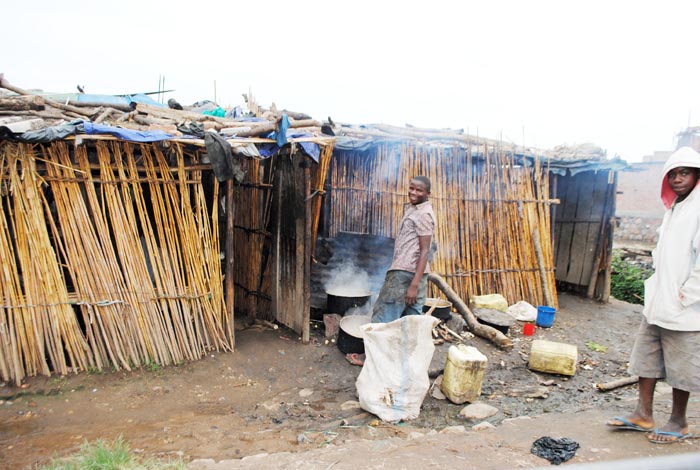The City Council authority has decided to close dirty restaurants which don’t respond to hygienic norms in Bujumbura. However, some of the restaurants are still working despite the decision.-Yves Didier Irakoze
Those small restaurants are often built with wood, strips of canes or stalks, and covered with plastics and leaves. The floor is unsafe and everywhere flies are roaming around. Even the food is prepared in non hygienic conditions and cooked inside the so-called houses which are actually less comfortable than grass huts. These can catch fire very easily as the cooking is done inside or outside them. Both the owners and customers seem not to see the danger that can occur. They don’t even think that they are easy targets of diseases caused by the lack of good hygienic conditions. The restaurants are scattered everywhere in the capital city like Bwiza, Kamenge, Buyenzi, Kinindo, Kinama, Nyakabiga, Jabe, Kibenga, Kanyosha, etc. N. C. one customer found in a dirty restaurant behind Kinindo market, states that he comes to feed himself in such an unhealthy place because other restaurants are very expensive. “With BIF500, I can get enough food to eat whereas in other restaurants if I don’t have more than BIF2000 I can’t get anything,” says N.C. J. M. a cyclist met at Buyenzi restaurant, indicates that he doesn’t care about the hygienic state of where he takes food, but what is important for him is to be fed up. “I don’t have much money to build a solid house. I only buy cheap materials to construct a shelter where I can run my business for my family’s survival,” declares C.M., owning a dirty restaurant at Buyenzi. Concerning his opinion about unsafe and untidy restaurants, C.M. points out that he always cleans the place and there isn’t any customer who has already complained to him that he has suffered from any kind of disease due to dirtiness.
What are people in charge of hygiene in Bujumbura doing?
According to Prosper Muyuku, in Charge of Hygiene in the Ministry of Public Health and Fight against AIDS, the exploitation license was delivered by the Ministry in Charge of Trade, the City Council or the Administrator some years ago but now it is granted by many people in the administration; the reason why there is an increasing number of those restaurants. “The City Council has introduced the system where the Neighborhood Chief can now provide the license. Today, the technician in charge of Hygiene has lost the power he had in former times in terms of collaboration with the government,” regrets Muyuku. Consequently, the Ministry of Public Health and Fight against AIDS hasn’t anymore a lot of control over either the owners or the activities of those shameful restaurants.
Candide Kazatsa, in Charge of Communication in the City Council mentions that the activity of inspecting those restaurants is still going on. “We continue to close them and the City Council respects its mission,” concludes Kazatsa.




















 IWACU Open Data
IWACU Open Data

